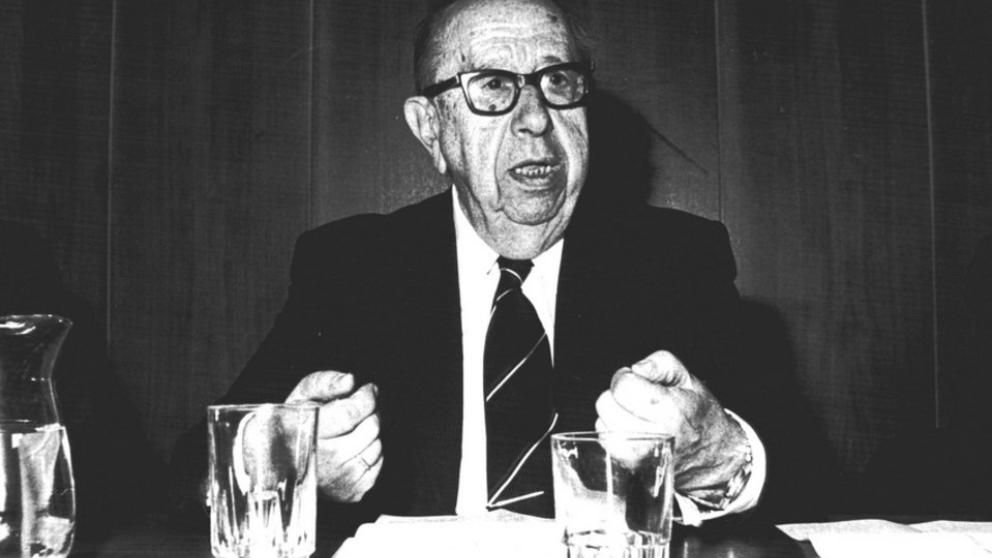25. A Tale of Three Countries.
25. A Tale of Three Countries.

The article by Solís opened the can of worms. From then on, any piece of news comming from Vietnam had a complete out of proportion effect into the Spanish population. Meanwhile, the anti-Francoist opposition began to conspire again.
After the failed "Contubernio de Munich", the failed meeting of Munich in 1962 of the right-center opposition to Franco, the search for alternatives was on the march again, but, as usual, by different ways. Thus, from 1968 to 1969, the opposition to Franco called for useless meetings that repeated what has already been said at Munich more than half a decade ago but without achieving too much.
As the war progressed and with it the rising number of Spanish casualties, Spain was rocked by strikes. The unrelentess activity of the Spanish workers and students began to have an effect upon the regime. Franco was mortified on his pride, as the effect of those actions was magnified by the foreign press. Even worse, some Spanish newspapers defied a bit the Minister of Information, Manuel Fraga, and informed the Spanish reader about the demonstrations in a too direct way. Thus, by June 1968, Fraga was dismissed by Franco and replaced by Alfredo Sánchez Bella, and the Press Law of 1966 was applied in a more restrictive and repressive way.
This, of course, had an inmediate effect. The repressive turn of the Franco regime worried London and Washington. Fearing that the Spain was going bck in time, they tried to press, without too much success, Madrid to find a way to appease the students and workers without turning into sheer repression, but Franco payed no attention whatsoever. Johnson, with his hands full with Vietnam, was the first international leader to abandon any hope of appeassing Franco, and was soon followed by Wilson. To make it worse, the European_Economic_Community (EEC) made quite clear that any negotiation with Spain about a future Spanish association with the EEC was out of the question after the turn to the worse of the dictatorship.
Thus, by the second half of 1969, Franco's regime was moving back in time and, at the same time, was on the verge to become an international pariah state. Then, two events in Vietnam worsened a bit more the already complicted situation in Spain.

The article by Solís opened the can of worms. From then on, any piece of news comming from Vietnam had a complete out of proportion effect into the Spanish population. Meanwhile, the anti-Francoist opposition began to conspire again.
After the failed "Contubernio de Munich", the failed meeting of Munich in 1962 of the right-center opposition to Franco, the search for alternatives was on the march again, but, as usual, by different ways. Thus, from 1968 to 1969, the opposition to Franco called for useless meetings that repeated what has already been said at Munich more than half a decade ago but without achieving too much.
As the war progressed and with it the rising number of Spanish casualties, Spain was rocked by strikes. The unrelentess activity of the Spanish workers and students began to have an effect upon the regime. Franco was mortified on his pride, as the effect of those actions was magnified by the foreign press. Even worse, some Spanish newspapers defied a bit the Minister of Information, Manuel Fraga, and informed the Spanish reader about the demonstrations in a too direct way. Thus, by June 1968, Fraga was dismissed by Franco and replaced by Alfredo Sánchez Bella, and the Press Law of 1966 was applied in a more restrictive and repressive way.
This, of course, had an inmediate effect. The repressive turn of the Franco regime worried London and Washington. Fearing that the Spain was going bck in time, they tried to press, without too much success, Madrid to find a way to appease the students and workers without turning into sheer repression, but Franco payed no attention whatsoever. Johnson, with his hands full with Vietnam, was the first international leader to abandon any hope of appeassing Franco, and was soon followed by Wilson. To make it worse, the European_Economic_Community (EEC) made quite clear that any negotiation with Spain about a future Spanish association with the EEC was out of the question after the turn to the worse of the dictatorship.
Thus, by the second half of 1969, Franco's regime was moving back in time and, at the same time, was on the verge to become an international pariah state. Then, two events in Vietnam worsened a bit more the already complicted situation in Spain.
